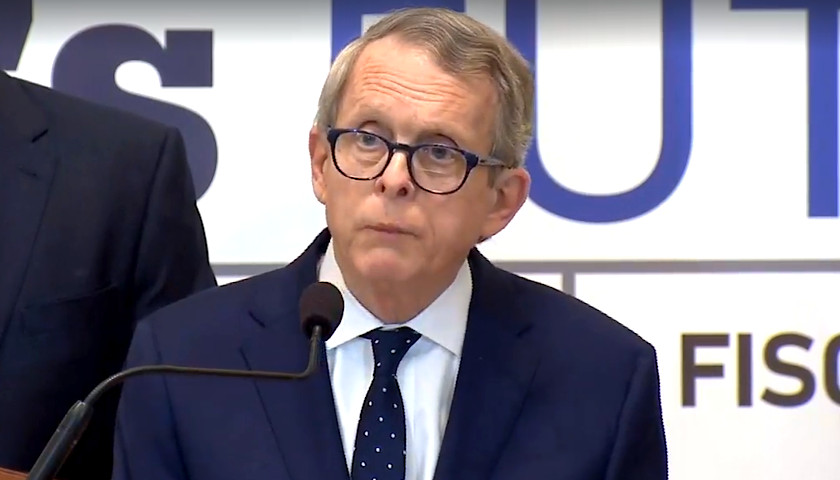An expert analyst suggested that the revenue forecast in Gov. Mike DeWine’s budget proposal is $705 million too high during a testimony before the House Finance Committee Tuesday.
According to Legislative Service Commission Director Mark Flanders, DeWine’s General Revenue Fund (GRF) tax revenue forecasts would come up $704.9 million short across the next three fiscal years.
“Legislative Budget Office economists forecast somewhat lower baseline GRF tax revenues for the current fiscal year and the next biennium than are forecast for the executive budget,” Flanders said in his testimony.
Specifically, Flanders said his economists came up with predictions that are $196.7 million lower than DeWine’s in Fiscal Year 2019, $347.3 million lower in Fiscal Year 2020, and $160.9 million lower in Fiscal Year 2021.
“The outlook for state government revenues is greatly influenced by the course of Ohio’s economy and the economy of the nation. U.S. economic expansion was strong through much of last year, but recent economic indicators have been mixed,” Flanders said.
But Kim Murnieks, director of the Office of Budget and Management, claimed Tuesday that the forecasts in DeWine’s budget are are “conservatively forecast.”
“As we introduce this budget, the state is in strong fiscal condition, about to enter the final quarter of Fiscal Year 2019 with revenues exceeding expenditures, maintaining a significant balance in the Budget Stabilization Fund, and continuing to operate with a balanced budget. We seek to run Ohio like a high-performing business. In every business, there comes a time to cut back—and then a time to reinvest to achieve success. Now is that time for our great state,” Murnieks said during her testimony, later claiming that the budget’s forecast is “not aggressive.”
In any case, a revenue shortfall could have a serious impact on some of the programs proposed in DeWine’s budget, especially his $900 million “H2Ohio” fund. That fund would be used to help clean up Lake Erie, but relies on collecting money from whatever surplus remains at the end of each biennium over a 10-year period.
But doing nothing about Lake Erie could be politically costly for DeWine in some parts of the state, such as Toledo, where residents recently voted to pass a “Lake Erie Bill of Rights.”
– – –
Anthony Gockowski is managing editor of Battleground State News, The Ohio Star, and The Minnesota Sun. Follow Anthony on Twitter. Email tips to [email protected].
Photo “Mike DeWine” by Mike DeWine.





